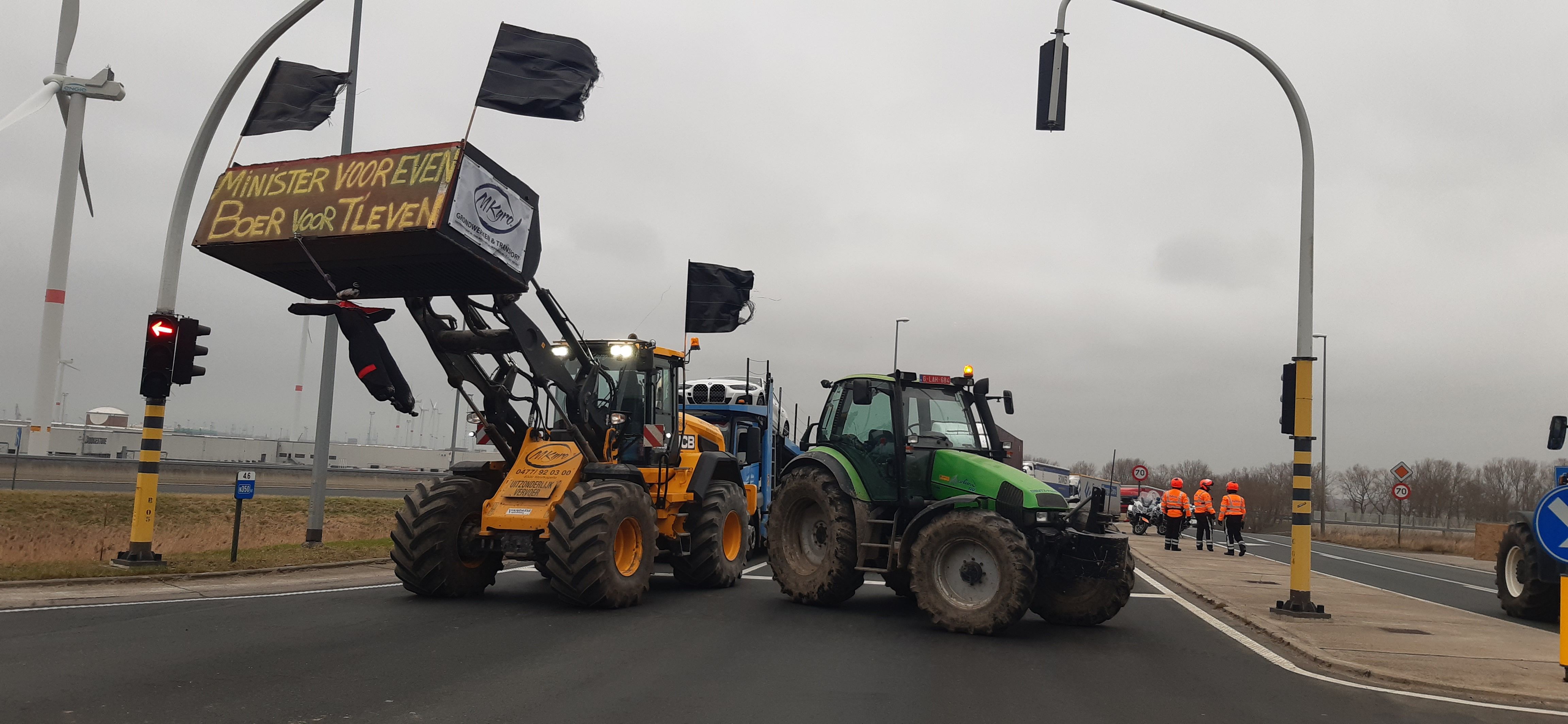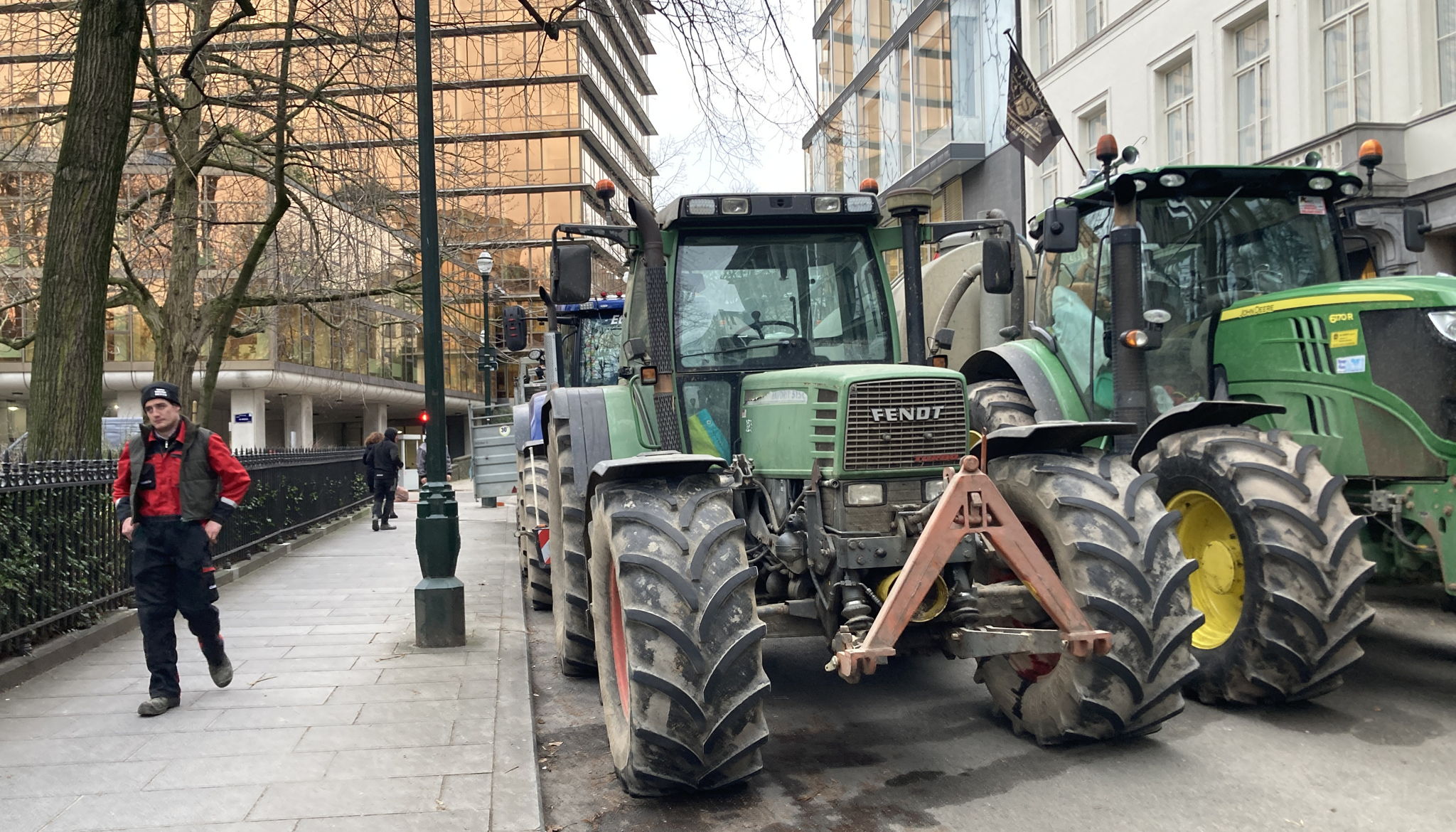De Croo proposes action at European level after meeting farmers amid protests

Farmers’ unions met prime minister Alexander De Croo on Tuesday evening to discuss ongoing complaints that have led to roads, supermarket distribution centres and the port of Zeebrugge being blocked in protest.
The unions wanted De Croo to put their concerns on the agenda of the European summit on Thursday when EU heads of government meet in Brussels. The concerns include strict European environmental regulations, too many administrative rules, the Mercosur free trade agreement with South America and too little legal certainty.
They met De Croo and federal Agriculture minister David Clarinval on Tuesday. Following the meeting, De Croo said that Belgium intends to revisit the compulsory set-aside rule included in the EU’s Common Agricultural Policy (CAP). This measure, which imposes a 4% non-productive area requirement on every farm, has been strongly criticised in farmers’ demonstrations across Europe.
De Croo intends to discuss the proposal with European Commission president Ursula von der Leyen.

Several farmers drove their tractors into Brussels' European quarter on Monday evening and said they intended to stay there until the EU summit on Thursday.
The second issue concerns the administrative burden. Agriculture minister David Clarinval has expressed his intention to set up a working group with the regions with the aim of “evaluating red tape” and “reducing controls”.
The third issue concerns the resumption of a food chain consultation platform under the management of the federal government that brings together food producers, distributors and retailers. Finally, the federal government intends to launch a general debate on the CAP at the Agriculture and Fisheries Council in February.
Further discussion will be had in the coming days, De Croo said, and he called on farmers not to block schools, businesses and ports.
Supermarket blockades
The ongoing protests have caused disruption around the country. Due to blockades of roads and supermarket distribution centres, certain products face possible shortages.
“Just like yesterday, we are hindered by highway blockades,” said Colruyt spokesperson Hanne Poppe. “Our trucks – as is the case for the whole sector – are stuck in traffic or we have pre-emptively cancelled trips.” As a result, some deliveries are experiencing delays.
A backlog at the Colruyt distribution centre in Halle, where protests were held on Sunday night, has now been cleared.
Aldi is experiencing disruption because of an ongoing blockade at the Villeroux distribution centre in Vaux-sur-Sûre, while a Lidl centre in Marche-en-Famenne was also blocked on Tuesday.
Ports targeted
Farmers in West Flanders blocked the access roads to the port of Zeebrugge on Tuesday afternoon. They said they intended to maintain the blockade until at least Wednesday evening.
The entrances and exits of the A11 towards the port were blocked by around 20 tractors, in protest against the fact that industry “is allowed to emit 40 times more” than farmers.
There were suggestions that the Antwerp port area would also be targeted on Wednesday by actions by farming organisations. The authority has asked staff to work from home if possible.
"This risks becoming an economic battlefield"
Meanwhile, several employer organisations called on farmers to lift their roadblocks. “The tsunami of regulation from Europe is creating an unstable business environment for farmers and all other businesses,” said a spokesperson for the FEB, the federation of Belgian enterprises. “But the point farmers want to make is now clear.”
Unizo said it understood “the farmers’ desperation and actions” but called on them “not to take the economy hostage”. “This risks becoming an economic battlefield,” said Unizo managing director Danny Van Assche. “People are not getting to work, shops and businesses are not being supplied and cannot deliver. This cannot go on any longer.”
Farmers protest at the port of Zeebrugge © BELGA PHOTO / VIDEO KURT DESPLENTER
Related news

